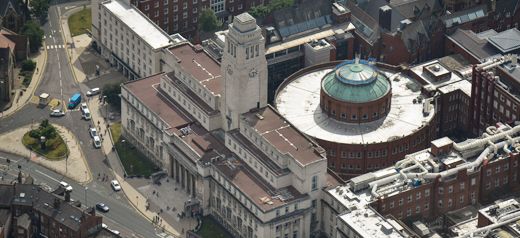
Faster footballs result in harder headers
Scientists have discovered the severity of the impact on a player’s head while heading a football is influenced much more by the speed of the ball than its mass and stiffness.

Scientists have discovered the severity of the impact on a player’s head while heading a football is influenced much more by the speed of the ball than its mass and stiffness.

New research is helping to explain one of the big questions that has perplexed astrophysicists for the past 30 years - what causes the changing brightness of distant stars called magnetars.

Scientists have made a breakthrough in their work to develop semi-autonomous colonoscopy, using a robot to guide a medical device into the body.

Wearable digital devices are to be trialled in care homes to establish whether the technology can help reduce covid-19 infections and prevent deaths.

Three leading academic researchers, two alumni and a former Pro-Chancellor at the University of Leeds have been recognised in the Queen’s Birthday Honours.

Meltwater lakes that form at glacier margins cause ice to recede much further and faster compared to glaciers that terminate on land, according to a new study.

University of Leeds researchers are taking part in a new Born in Bradford project with primary school children across the city - to measure levels of pollution and its impact on health.

Keeping our students and staff safe and healthy has been our number one priority throughout the coronavirus pandemic.

Rising nitrous oxide emissions are jeopardizing climate goals and the Paris Accord, according to a new international study.

The University of Leeds has secured a £5.4 million grant to identify new techniques for investigating and manipulating the chemical building blocks of life - proteins.